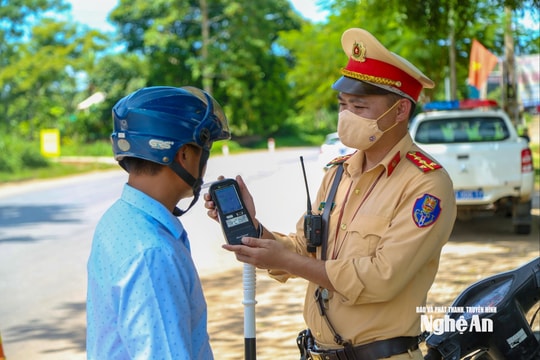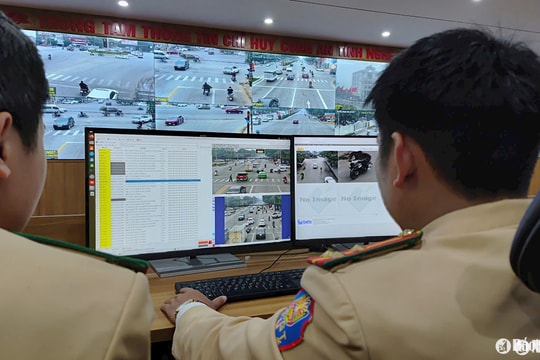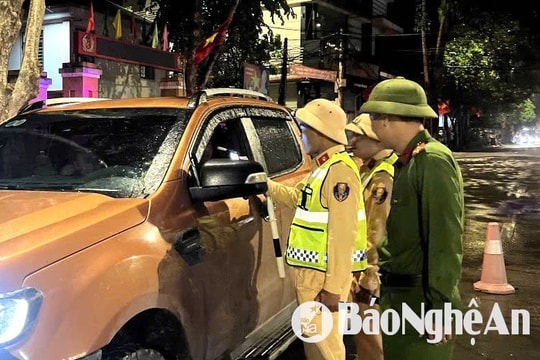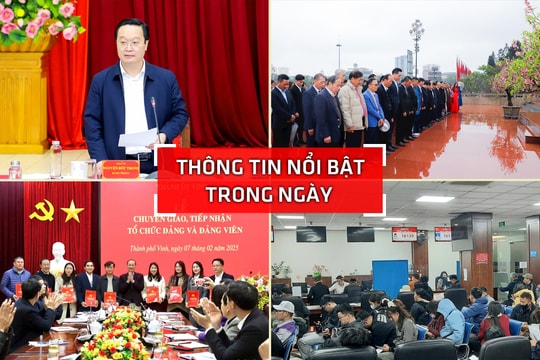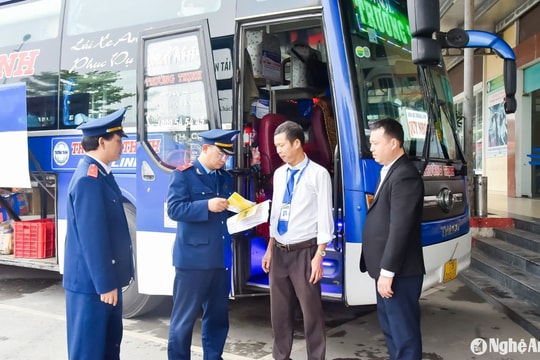Difficulty in keeping and maintaining violating vehicles in Nghe An
(Baonghean) - The issuance of Decree No. 31/2020/ND-CP of the Government, effective from May 1, 2020, which allows for the guarantee of violating vehicles, will help organizations and individuals to preserve their own vehicles. At the same time, it will gradually remove difficulties in handling and preserving exhibits and means of administrative violations by competent authorities.
Overloaded parking lot
Dust, rusty suspension systems, flat tires, faded paint... are images of vehicles violating the Traffic Law (mainly motorbikes) at many warehouses and parking lots that have long violated the Traffic Law. This situation not only causes waste of assets, but also makes it difficult to arrange parking space... Through research, this is really a pressure for both people and authorities.
For many people, a car is a fortune, so having to take the car to the temporary parking lot and expose it to the rain and sun for many days makes the vehicle owners worried and uneasy. Mr. N.D.H (in Vinh City), a person who violated traffic laws and had his car detained, said: Having his car detained is unavoidable. In addition to not having a means of transportation, every day I have to listen to my parents sigh and lament because the car has to be parked, "the pain of the child is the pain of the child", the car is a big asset", Mr. H. said.
 |
| Vinh City Traffic Police transport violating vehicles to temporary storage. Photo: Kien Rose |
According to the reflection of some vehicle owners, because of the above reason, in the process of handling traffic violations, it leads to negative behavior such as asking for and giving, "dodging" violations to avoid having the vehicle detained. Or if the vehicle is detained, many will try to get the vehicle back earlier than the prescribed time limit, because they do not want the vehicle to stay in the parking lot for a long time.
On the part of the authorities, to temporarily detain the vehicle, it is required to transport and preserve it... Particularly for vehicles that have exceeded the processing time limit, according to the provisions of the law, if the violator does not come to resolve the issue, the vehicle detaining unit will conduct verification procedures to find the owner. If the owner cannot be found or is found but this person does not come to claim it and the vehicle is not evidence in the cases, liquidation procedures will be carried out to confiscate the State budget.
The regulations are like that, but to complete the liquidation procedure, the authorities have to spend a lot of time and effort. Senior Lieutenant Truong Xuan Luan - Deputy Head of the Traffic Police Team of Nghi Loc District Police said that in addition to posting notices on mass media, in 2019 alone, the team sent invitations to homes, mobilizing 50 cases to come and handle, but only 2 cases came to get the car and it was not until early 2020 that the liquidation was completed.
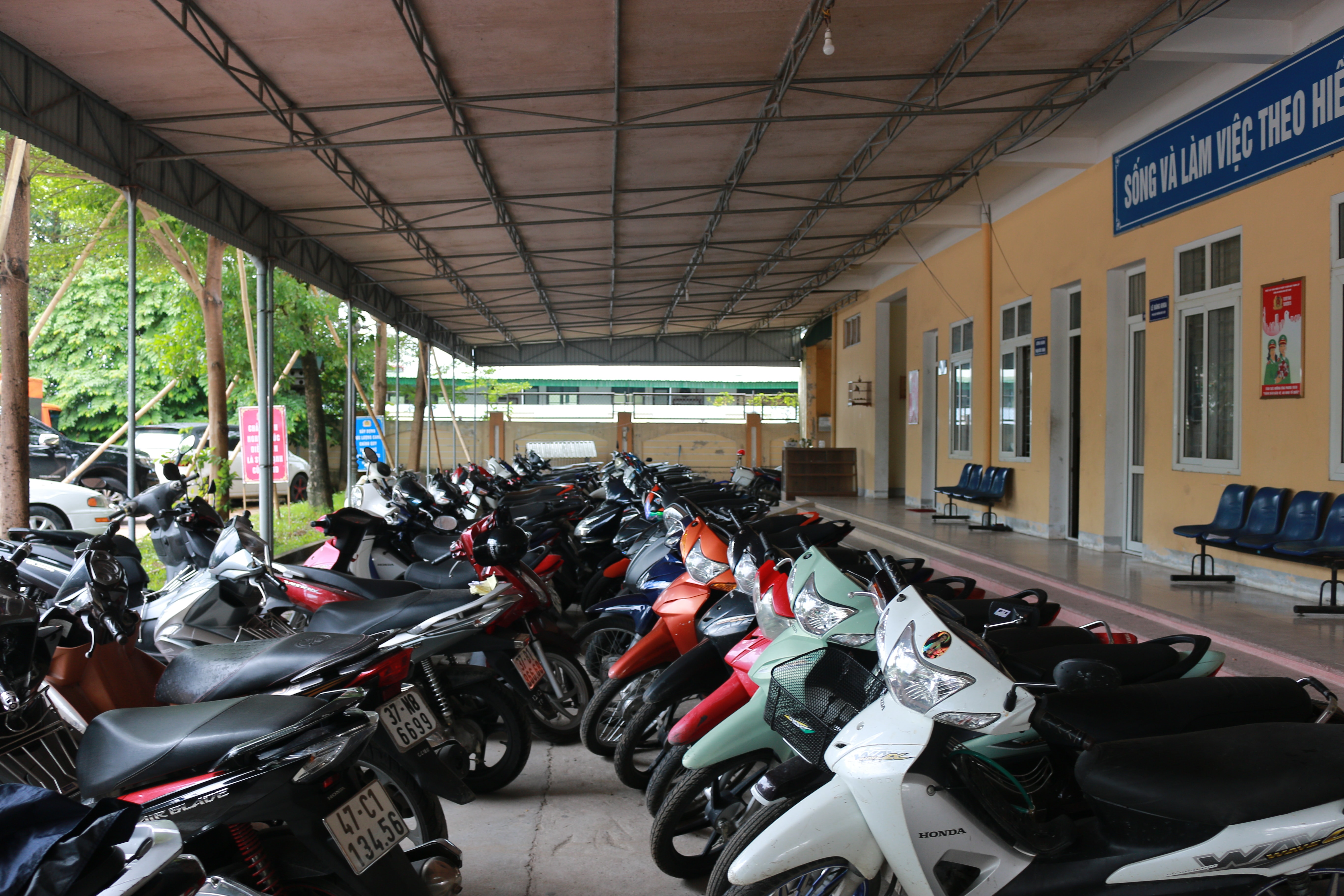 |
| The illegal parking lot at the Traffic Police Department of Vinh City Police was once overloaded and had to be located right in the lobby, affecting traffic. Photo: D.C. |
Lieutenant Colonel Vo The Quyen - Deputy Head of Dien Chau District Police also said: Every year, the Traffic Police team carries out liquidation procedures, however, the situation of traffic violation vehicles and accident vehicles is still large, in addition to making the warehouse overloaded, storage also becomes difficult, because it must ensure safety conditions and fire prevention and fighting, especially in the hot season.
According to Lieutenant Colonel Vo The Quyen, in many cases outside the province, traffic police base on the address in the violation report to send notices, as well as coordinate with local police to contact and resolve the issue, but it is still very difficult to find the vehicle owner.
Through investigation, the Traffic Police units all said that when detained, most of the violating vehicles are in a minimum condition of being able to run, but after being parked for a long time without the owner coming to claim them, for many reasons, the vehicles will inevitably lose parts, rust, etc. In addition to the risk of losing their value, leading to waste, due to limited parking space, the overload of remaining violating vehicles also poses many difficulties for the authorities in the process of handling and resolving.
According to statistics from the Provincial Traffic Police Department, in addition to the number of vehicles previously in stock, in the first 3 months of 2020 alone, police units and localities have temporarily detained 297 cars, 3,956 motorbikes and 142 electric motorbikes. Units and localities with a large number of vehicles being temporarily detained are Vinh City, Dien Chau District, Quynh Luu, Yen Thanh, Hoang Mai Town, etc.
Reasonable regulations, beneficial for both sides
In recent times, the authorities have facilitated administrative procedures for people to resolve, but the backlog of traffic violations continues. In this situation, on March 5, 2020, the Government issued Decree No. 31/2020/ND-CP amending and supplementing a number of articles compared to Decree No. 115/2013/ND-CP dated October 3, 2013 of the Government, accordingly, there have been adjustments to increase the binding force on owners, ensuring strict and correct enforcement of the law.
According to the new regulations in Article 14 of Decree No. 31/2020/ND-CP, for vehicles violating administrative regulations that are subject to temporary detention, if the violating organization or individual meets the following conditions, they will have the right to keep and preserve the vehicle themselves: Individuals with a valid permanent or temporary residence registration or a certificate of work place; organizations with a specific and clear operating address; individuals and organizations with financial capacity to deposit bail for the vehicle.
Regarding procedures, organizations and individuals who need to be guaranteed must submit an application to the competent authority for temporary detention. When submitting the application, they must attach the original or a notarized copy of the household registration book or temporary residence book, identity card or citizen identification card (or personal identification number) or a certificate of the place of work of the agency or organization where the violating individual is working. For violating organizations, there must be documents proving the address of the organization's headquarters.
In particular, when handing over a vehicle to an organization or individual for safekeeping, the competent authority will temporarily withhold the vehicle registration certificate to ensure enforcement of the penalty decision. The violator is absolutely not allowed to use the violating vehicle to participate in traffic during the time of being handed over for safekeeping; and is not allowed to arbitrarily change the place of storage.
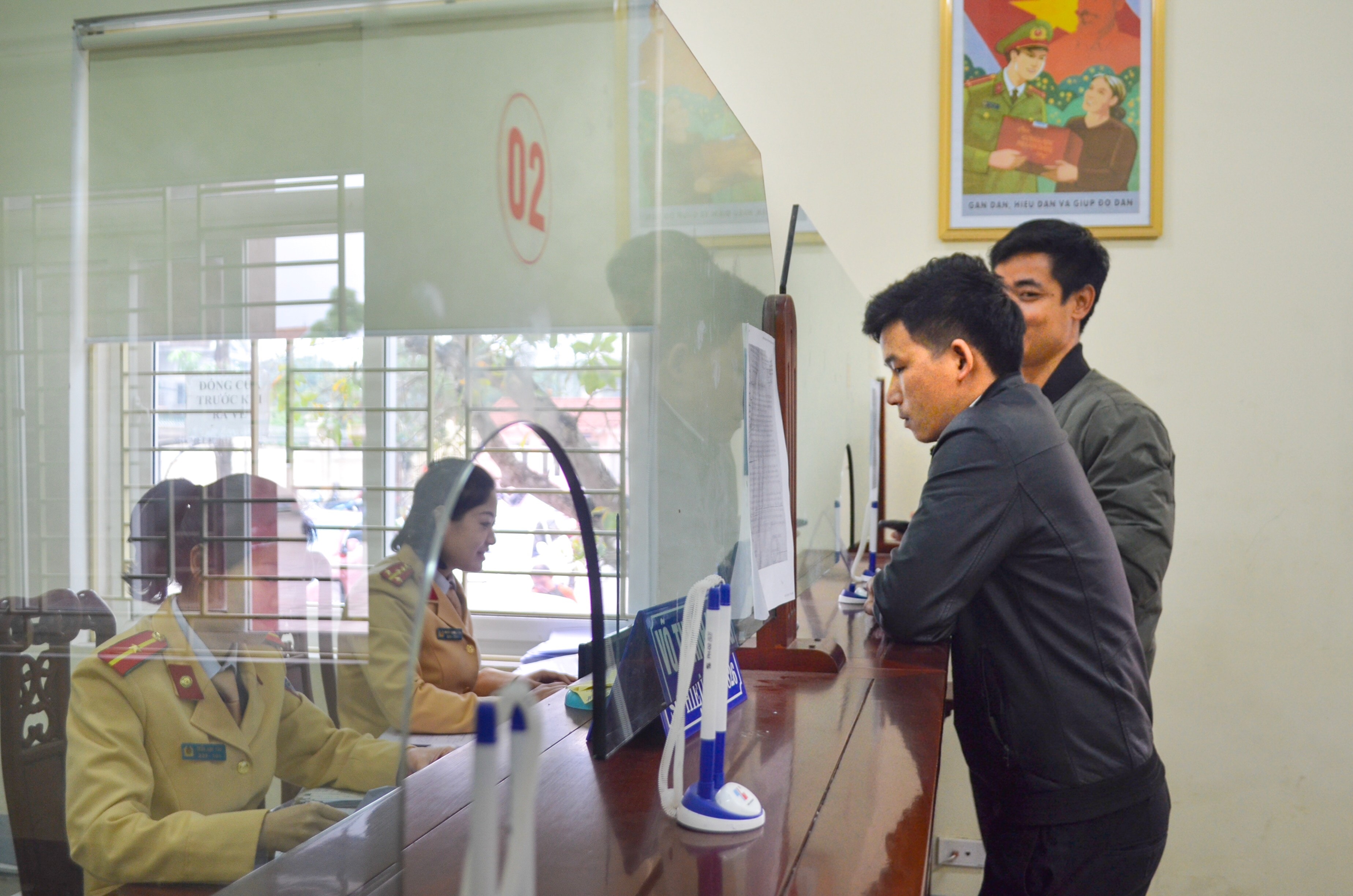 |
| Violators pay fines at the Provincial Traffic Police Department. Photo: D.C. |
Most people believe that allowing people to bail their vehicles for traffic violations is reasonable. Ms. Tran Thi Hien in Le Loi Ward (Vinh City) said that although the bail amount is "extremely high" compared to the fine, she is still willing to pay it to be able to take the vehicle home and wait for the day of processing, rather than being put in a temporary detention yard. However, many people believe that the procedure for bailing a vehicle for traffic violations is quite time-consuming; the time to process the application takes 2 days, while the time to temporarily impound the vehicle is only 7 days. Not to mention that the current fine is high, many people do not want to get their vehicle back...
Lieutenant Colonel Nguyen Nam Hong - Deputy Head of the Traffic Police Department of the Provincial Police said that allowing people to pay bail and take their vehicles home for safekeeping has two benefits. People will feel absolutely secure about their property. At the same time, it helps reduce the load on the temporary detention points for violating vehicles, reducing the pressure on the authorities. In addition, paying bail to avoid having the vehicle detained will also contribute to pushing back the negativity in handling traffic violations.

